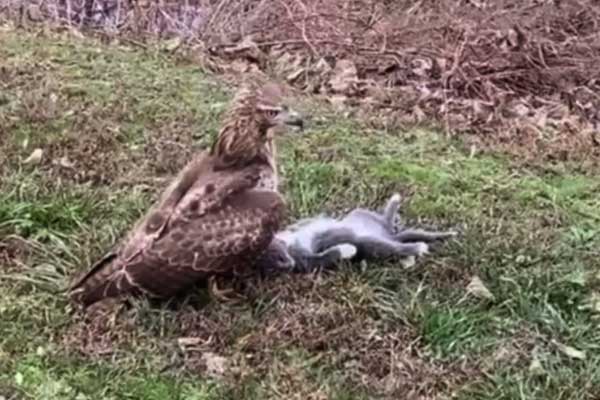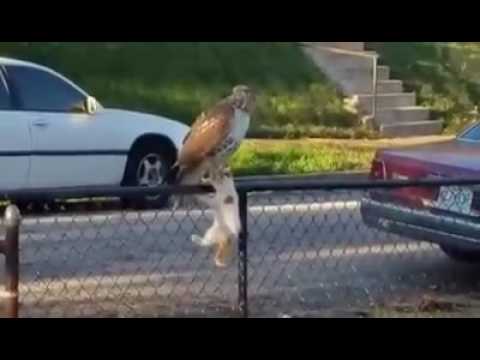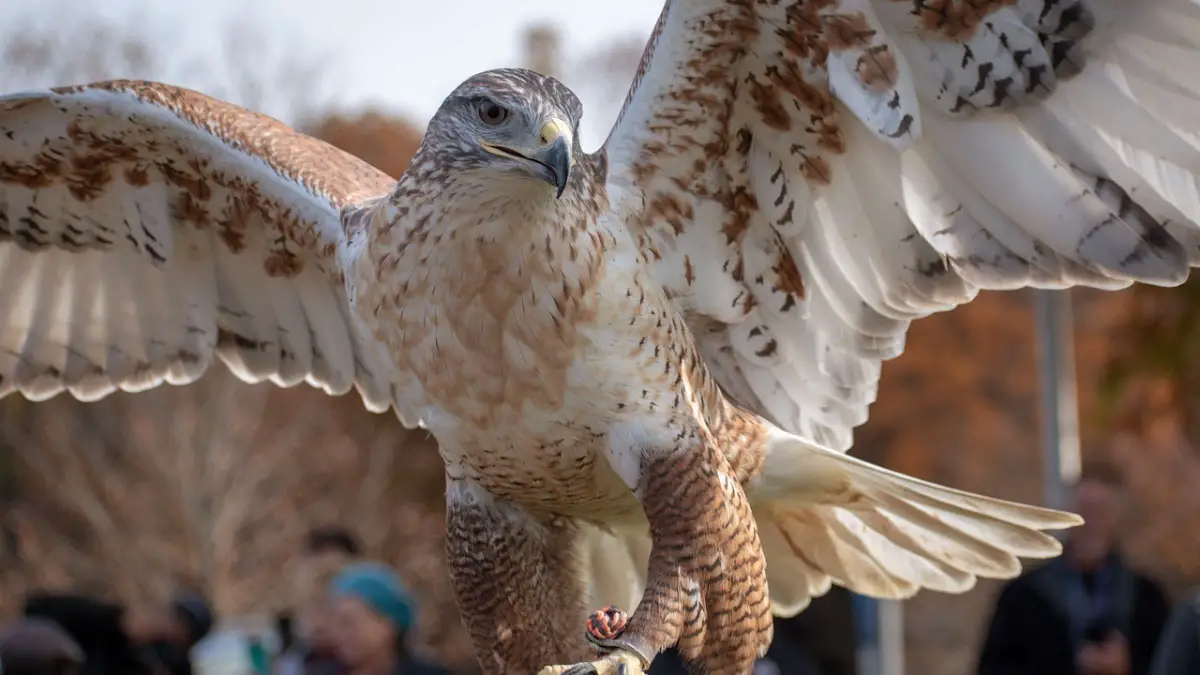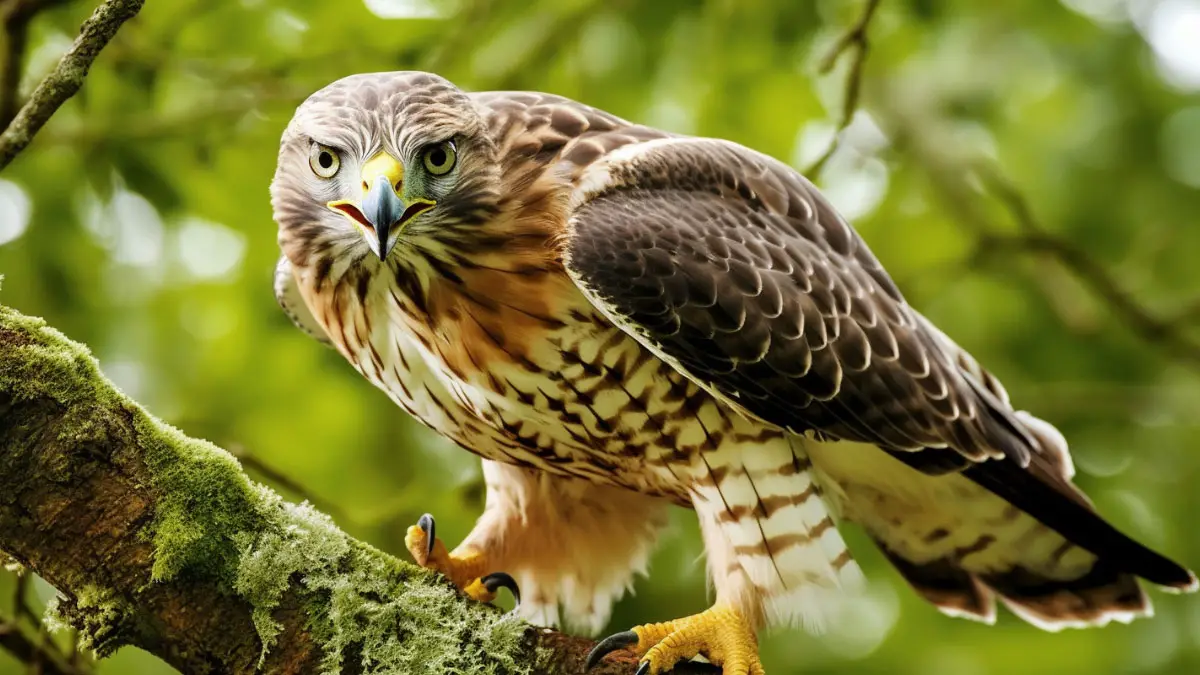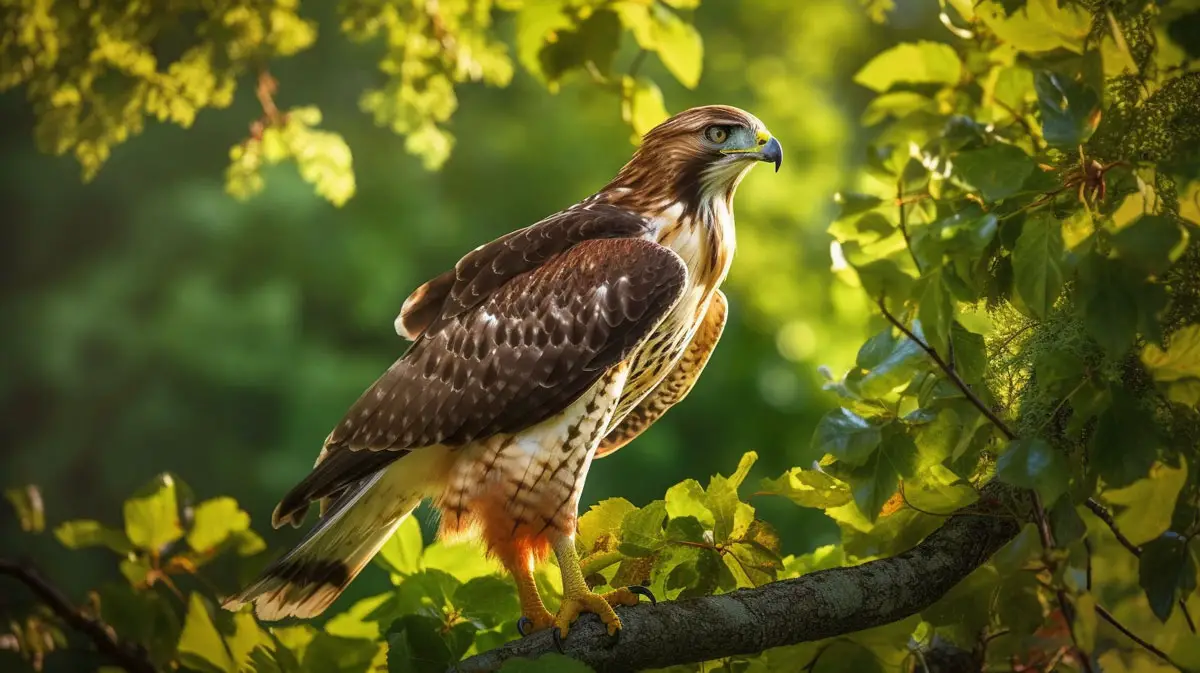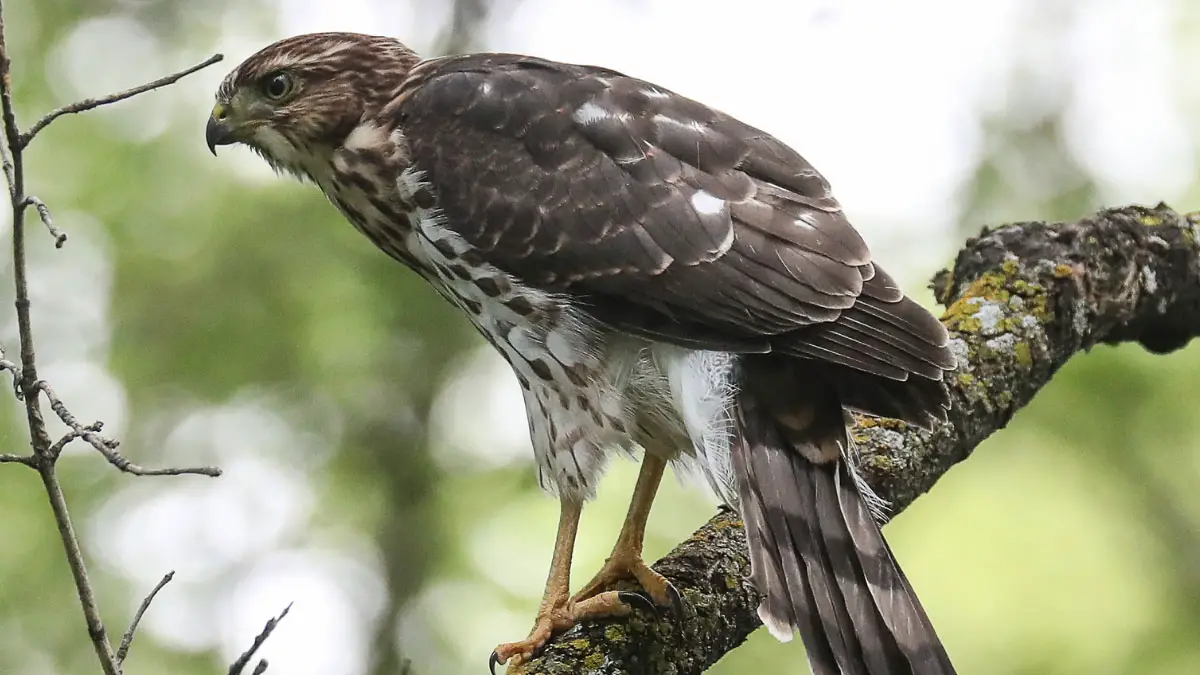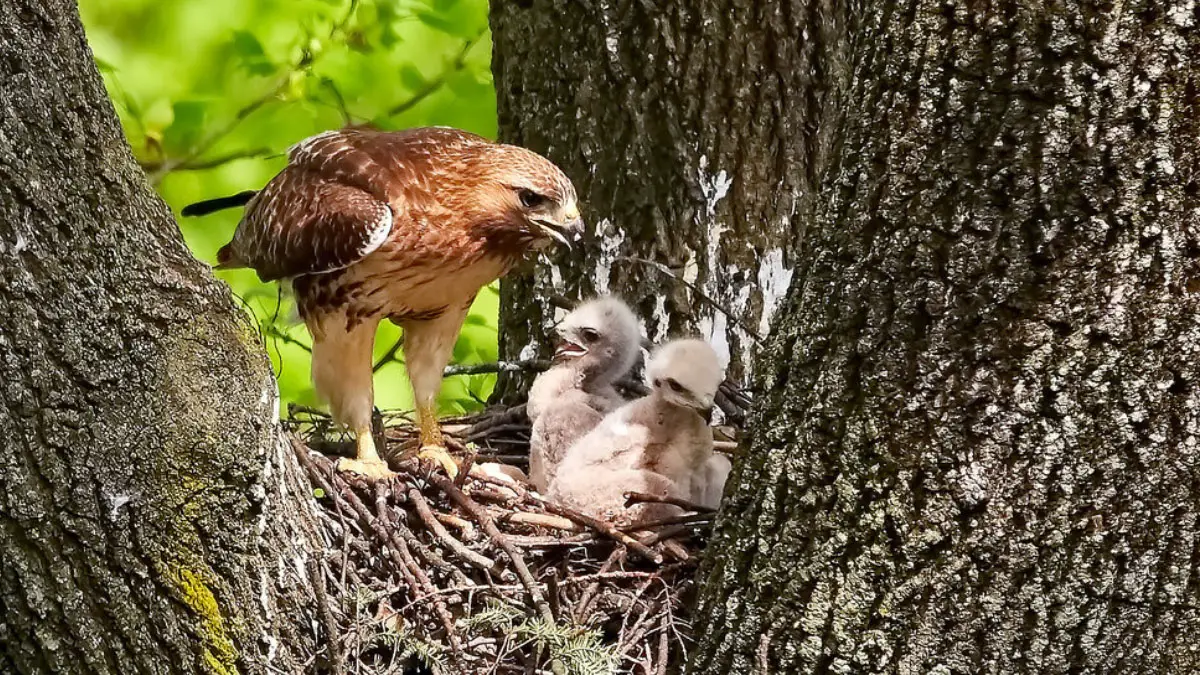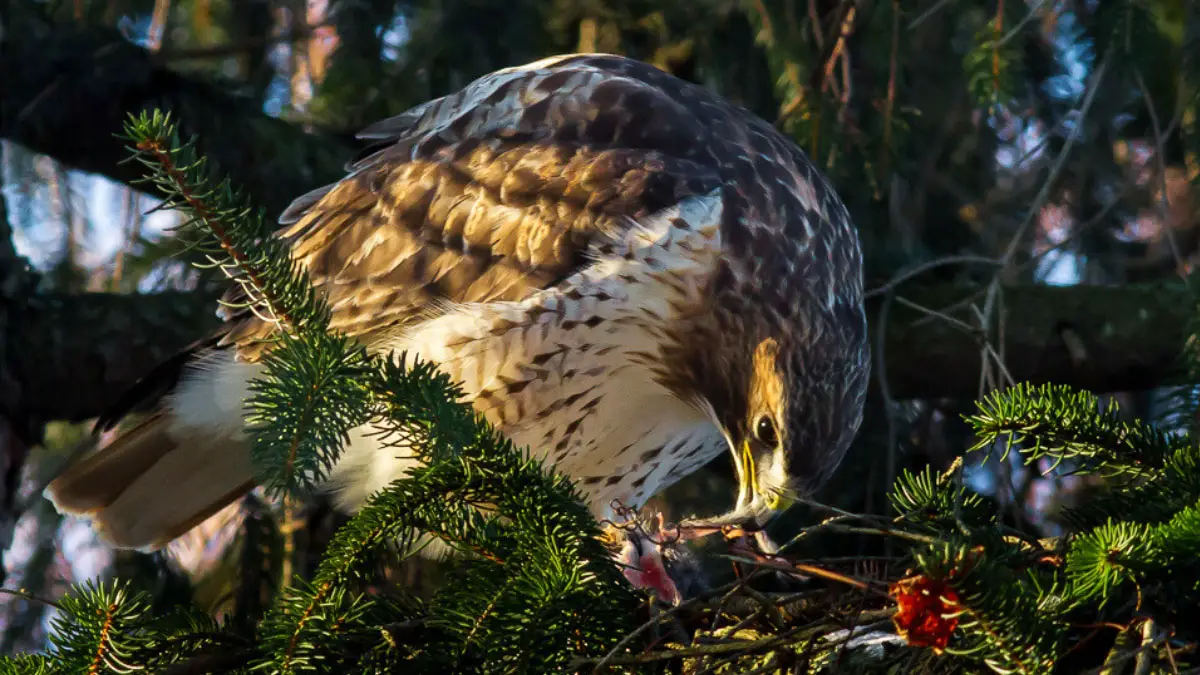Hawks are one of the fastest and strongest raptor birds or birds of prey in the world. Though they possess sharp beaks, they like to use their talons the most to attack their prey. A wide range of animals and birds can be in the diet of hawks.
But do hawks eat cats? Usually, hawks don’t attack or eat cats. That doesn’t necessarily mean hawks don’t eat cats at all. Hawks can attack cats if they feel threatened or are in a scarcity of food. Smaller cats or kittens are more vulnerable to hawk attacks.
In this article, we will go into detail about how frequently hawks hunt cats and why they do so. We will also discuss how you can keep your cats from being the prey of a hawk. Let’s get started.
Do Hawks Eat Cats?
As red-tailed hawks are the most common species of a hawk around America, we will talk about this bird only. This species is very efficient in hunting. With their high-speed attack and sharp talons, they can defeat almost any small animal that comes in their way.
But an adult cat is way too big to handle for a hawk. Though hawks can grow up to 13 pounds, their usual weight remains between 5-7 pounds. And their lifting capability mostly depends on their body weight.
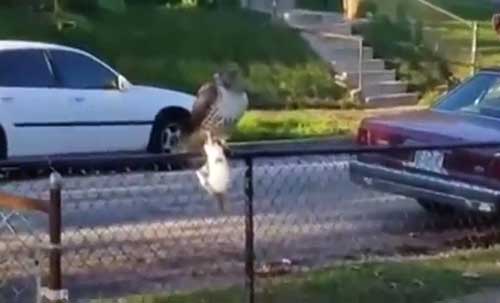
A full-grown hawk can lift a 3-5 pound cat at most. Lifting large cats isn’t possible for a hawk, so it isn’t common for hawks to hunt a cat. But if a hawk finds a cat suitable as prey, it will go after the cat and attack it. This mostly happens for kittens or weak cats.
If a hawk doesn’t find a suitable food supply and is starving for a long time, it might tend to attack cats even if they are large. In this case, hawks usually don’t carry the cat far away. To understand better what hawks eat and what not, you might want to check their diet list.
Will Hawks Attack Cats?
Although most hawks prefer wild prey, there are cases of hawks attacking domesticated animals like cats. This is more likely to happen if the hawk is young and inexperienced or if it’s desperate because it’s starving.
If you have a cat that spends time outdoors, keep an eye on it when there are hawks in the area. If you see a hawk swoop down toward your cat, make loud noises, or try to scare it off with a broom.
If your cat has been attacked by a hawk, take it to the vet immediately. It may have puncture wounds or other injuries that need to be treated. If you live in an area with a lot of hawks, consider keeping your cat indoors to protect it from these potential predators. Also, put a bell on your cat’s collar so you can hear if it goes outside and the hawk is able to approach it without you knowing.
What Do Hawks Eat?
Hawks usually attack wild animals smaller than their size. And when the animal is small, hawks don’t spare anything. From rodents to birds, everything is their prey in the right situation. Here is a list of prey that hawks hunt pretty often.
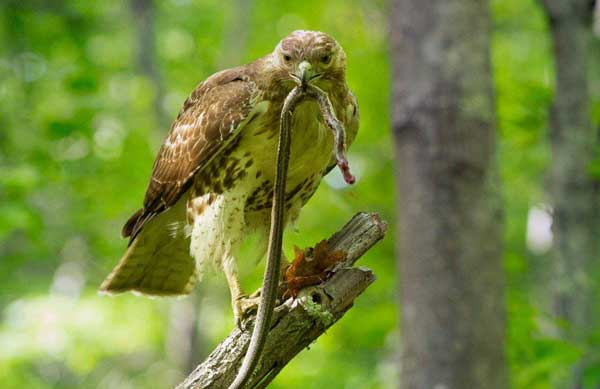
- Various species of rodents like rats or mice
- Large birds and waterfowl, if suitable
- Wild birds
- Jackrabbits
- Tree Squirrels or ground squirrels
- Snakes and lizards
- Frogs
Though hawks most commonly eat these animals, they will hunt other animals if required.
How Does a Hawk Kill Cats?
Hawks have excellent eyesight, which is eight times more powerful than humans. So, hawks can identify their prey from miles above. And once they select the prey, they dive down from a suitable position at an astonishing speed to surprise the prey.
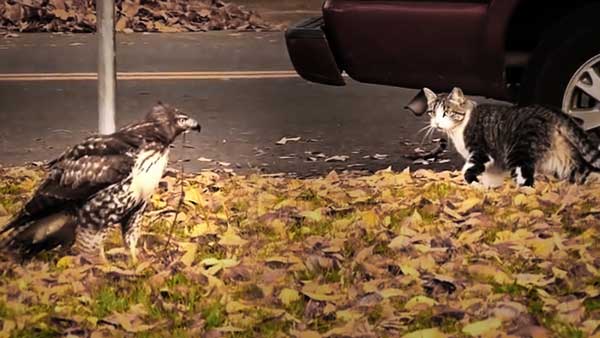
Here is a breakdown of how hawks attack and kill cats.
Searching for the Prey
You might often see a hungry hawk sitting at the top of a large tree calmly. What it does is sense the surroundings and look for suitable prey.
If small prey isn’t available, the hawk might look for weak cats or kittens that tend to move slowly.
Hiding or Soaring
Once the hawks find suitable prey, they will either hide behind the leaves or soar in the sky. This thing will continue unless the hawks find the right moment to attack their prey. And before commencing the attack, the hawk will remain silent and invisible.
Diving Down
After the right moment has come, the hawk will dive down in the blink of an eye. Hawks have a great speed, about 120mph, to be specific. They dive down on the prey at an angle so that they can grab the prey better.
Using Talons
Hawks have very sharp talons to hunt animals or birds. They mostly use their talons to scratch the body of their prey or claw into their flesh. After the prey is incapacitated, hawks can use their strong feet to twist and break the neck of the prey.
But it is a bit difficult in the case of cats. As cats are covered with a thick and furry coat, clawing cats isn’t a good idea for hawks. Twisting the neck of a large cat is also difficult. So, hawks will try to kill a cat by piercing its neck or throat.
Here is a video of hawks attacking cats. Check this to understand their course of action better.
Can Hawks Pick Up Large Cats?
As we have already stated, it is difficult for a hawk to lift cats. This is why they usually avoid cats as prey. But if hawks feel threatened by the movement of a cat or if they don’t find any other food sources, they might jump onto a cat. Hawks can lift smaller cats weighing less than five pounds.
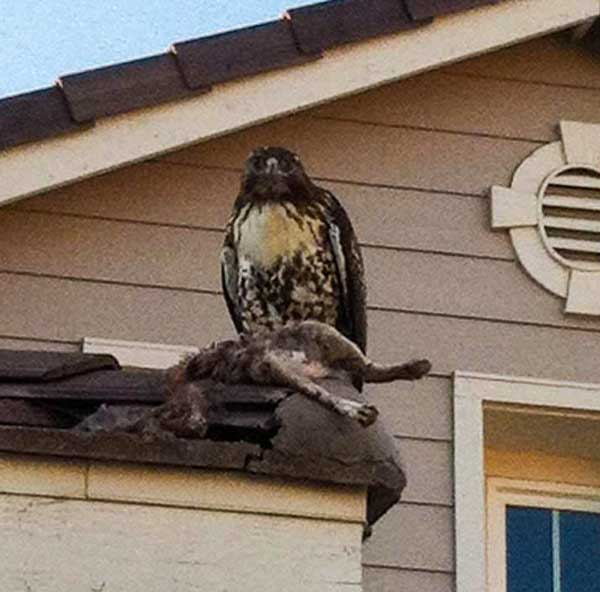
But lifting larger animals than this isn’t possible for most hawk species. Female hawks are a bit larger and stronger than male hawks, so they might tend to lift a bit larger cats.
Still, the chance of hawks lifting a large cat is comparatively low.
How to Protect a Cat from Hawk Attacks?
You must take precautions to save your cat from hawk attacks if you have a pet cat. Here are a few necessary steps to keep your cat safe.
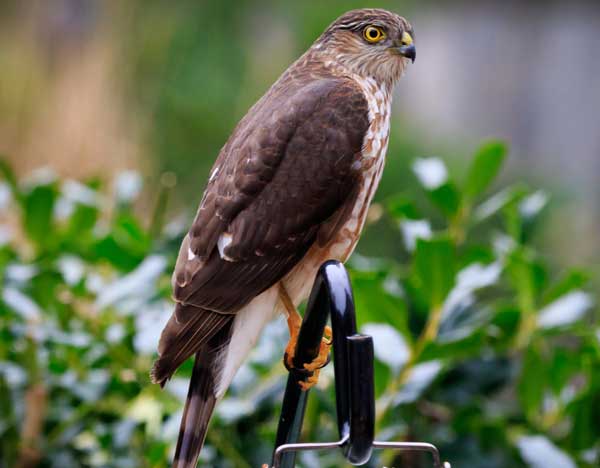
Regulate the Movement of the Cat
As cats often explore surrounding areas, you need to keep an eye on the cat if it goes outside. Letting the cat alone might be dangerous in some cases.
Feed the Cat Inside the Shelter
Cats often love to have their meals outside, as do hawks. If you feed the cat on the lawn, there are chances that hawks might be lured to take the food. As a result, it can also catch into a fight with the cat, leaving it wounded or dead.
Built a Safe Shelter
If hawks are too common in your neighborhood, you can build a permanent shelter for the cat. Also, train your cats to go inside the shelter if they sense any danger.
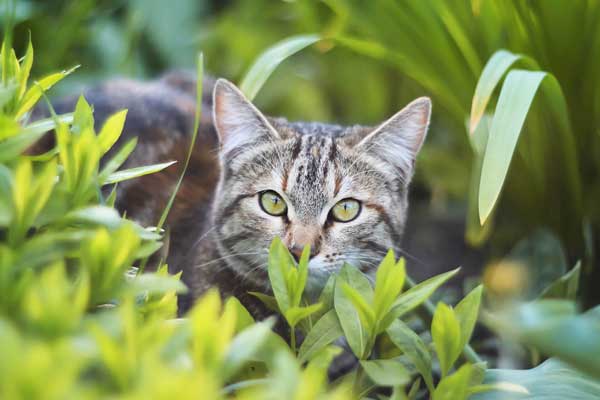
Deter Hawks
You can use methods like owl decoys or ultrasonic devices to deter hawks from your lawn.
FAQ
Here are answers to some frequently asked questions about hawks killing cats. Check them out.
There is a common myth that hawks are nocturnal. But this isn’t right. Hawks are diurnal, which means they only hunt during the daytime. Dusk can be the most suitable time for them as the vision of animals gets reduced.
Hawks usually don’t leave their territory. But if they do that, they might wait for a few hours to stalk their prey.
If food isn’t available, hawks have a record of eating dead cats. But it isn’t their favorite food, though.
Most red-tailed hawks will not eat a cat unless it is very sick or injured. The majority of their diet is made up of small mammals such as rodents and rabbits. However, they are opportunistic feeders and will take advantage of an easy meal if they come across one.
Final Words
We tried to give you an overall idea about whether hawks eat cats. And hawks don’t eat cats unless they are compelled to. In certain cases, they will still attack a cat and eat it.
As lifting cats is difficult for hawks, they won’t approach adult cats in general.
Do you want to know if hawks eat dogs or worms? Read our articles about it to learn more.
